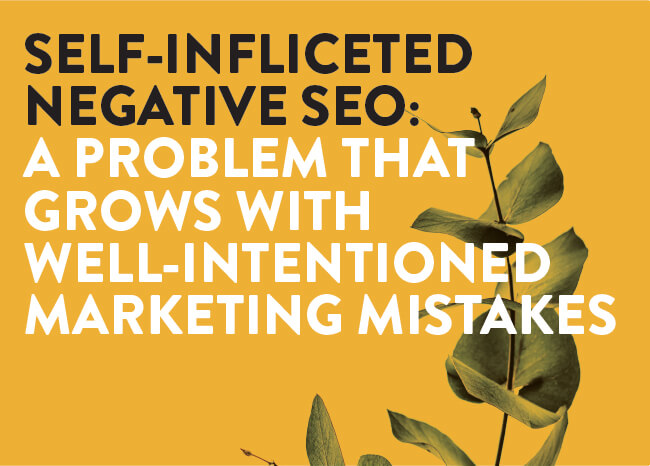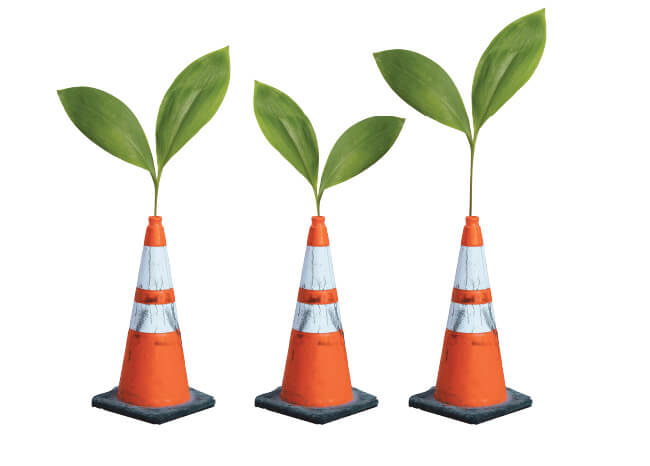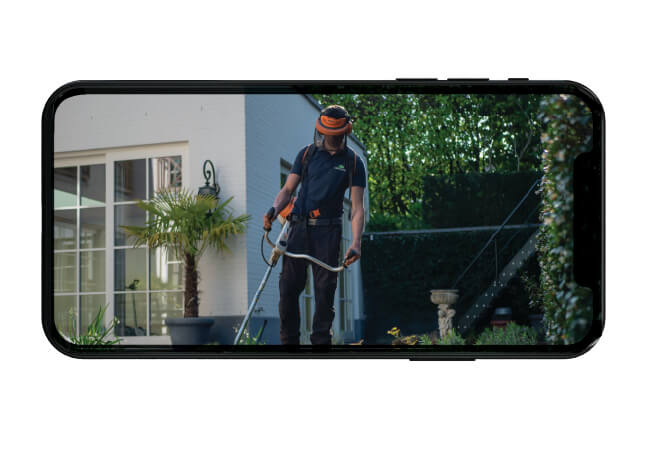 While there are many potential pitfalls when it comes to SEO, some of the most common are actually the result of well-intentioned marketing efforts. Organic search, as the name suggests, relies largely on a more natural and gradual approach to discovery, as opposed to more aggressive options such as pop-ups and direct outreach. As such, even veteran marketers can sabotage their own SEO campaign if they are not as familiar and experienced with SEO as they are with other aspects of marketing.
While there are many potential pitfalls when it comes to SEO, some of the most common are actually the result of well-intentioned marketing efforts. Organic search, as the name suggests, relies largely on a more natural and gradual approach to discovery, as opposed to more aggressive options such as pop-ups and direct outreach. As such, even veteran marketers can sabotage their own SEO campaign if they are not as familiar and experienced with SEO as they are with other aspects of marketing.
Effective SEO efforts typically utilize a slow and steady strategy of building assets such as content and links over time. As in the case of a physical structure, small imperfections will become more detrimental and problematic as construction continues without notice or address of these issues. The longer you wait to ensure that you are using effective building methods, the more difficult it will be to undo the damage that has been done, and that can grow exponentially over time.
For example, if you create a lot of content that is too similar, you may begin to cannibalize your own content over time, in addition to making your site appear spammy and less credible overall. Then, when and if you do decide to fix the issue, it may take a lot of time to review your blog posts, identify the duplicate content, and adjust or replace these pages. Furthermore, you may find that you need to simply delete some pages, which means that the time spent creating them in the first place was wasted at best, and directly detrimental at worst.
Common Mistakes Made Onsite and Offsite

Many common SEO mistakes are made by well-meaning marketing specialists. Many of these mistakes have to do with longstanding misconceptions about SEO strategy, as well as false equivalencies drawn between more traditional marketing strategies and SEO. These common mistakes include:
- Keyword Stuffing: Keyword stuffing was once an effective option before Google put more sophisticated algorithms in place. Nowadays keyword stuffing only serves to make your content seem awkward and over-promotional.
- Overly-Promotional Content: Except for product pages, if a visitor is reading a piece of blog content they found through search, they likely want a question answered, and may feel off-put or frustrated if the answer to that question is hidden in a bog of advertisements.
- Undescriptive Anchor Text: Your anchor text should be genuinely relevant to the link being used. Common mistakes include using vague anchor text like “click here” or using misleading anchor text like “running shoe maintenance” where the link is for a running shoe product page that has nothing to do with maintenance.
- No-Following Links: Many well-intentioned webmasters no-follow links because they are essentially worried that do-follow links will create catastrophic leaks in their cups of link juice. However, external links offer extremely valuable signals for building your website’s authority and credibility. This value outweighs any loss of link juice. Furthermore, Google does still crawl these links, regardless of any no-follow tags, and no-following does not circumvent the need to ensure that these links are relevant to the associated anchor text. If you don’t think a link is credible or relevant, or if it otherwise presents quality issues, it is best that you simply don’t include it.
- Prohibitive Pop-up Ads: Having to click out of multiple pop-up ads or read around them may cause your audience to look for a less annoying page to get information from. Pop-up ads can be very valuable, but the value can be diminished if they are over-used.
- Questionable Site Relationships: Backlinks are a hugely beneficial asset for an SEO campaign. However, not all backlinks offer the same quality. Spammy links from low-quality sites are likely to hurt more than they help in the long-run.
- Shallow Content: Your content should offer genuine value to your audience. It is better to have a few pieces of helpful, well-thought-out content than an avalanche of catchy titles with no substance.
Things to Remember About Your Audience

Organic marketing relies heavily on buy-in and engagement from the audience, and it follows that many SEO mistakes have to do with putting the product before the audience, which is counter to the point. As mentioned, more direct marketing strategies also exist. Organic search marketing and other organic marketing strategies are designed to take a different avenue for advertising.
By failing to consider the fact that these alternative strategies are meant to create a wider net of marketing, marketers can seriously dilute the value of their SEO efforts by essentially redoubling other efforts less effectively. To avoid this stumbling block, marketers should always remember that the audience is king. That being said, there are a few things that marketers should not forget about their audience when developing an SEO strategy:
- They probably don’t care about your specific product. Unless a user visiting your site searched your brand or product by name, they are likely only interested in the information related to their specific search query. While users may be open to discovering your brand, product, or service, they will likely feel blind-sided if they expect an answer to their question and are met with a wall of advertisements. A major goal of SEO is to associate your brand with honest, helpful information. Nurturing this association may help your brand stand apart from competitors.
- They don’t want to feel pestered. If someone is coming to your blog for answers, they likely will not appreciate having to battle their way through pop-up ads and other promotional materials.
- You don’t need to trick them. In the case of blog content, part of your goal is to genuinely demonstrate your expertise and your desire to help your audience, with the intention of building a positive brand association. If you know your industry and you know your audience, this should come relatively naturally.
- People do judge based on face value. While we would like to think that people will judge based on the content of a message rather than its presentation, that is often not the case. If your blog posts are disorganized and poorly edited, it may diminish your audience’s perception of your professionalism and dedication to quality.
Understanding Your Limitations

One of the best defenses you have against SEO self-sabotage is a healthy awareness of your limitations, as well as your company’s limitations. These limitations could directly have to do with a lack of SEO knowledge, but they could also have to do with associated skills and experience, such as writing optimized content, web development, or link building. If you understand your limitations, you can have better direction in terms of deciding whether you need to improve your own skills, hire an in-house specialist, or outsource some or all of your SEO efforts.
Should You Try SEO Without Experience?

While hubris can definitely be problematic when diving into SEO efforts, that doesn’t mean you can’t make some small steps yourself to good effect. As long as you focus on what is genuinely helpful to your audience, rather than on waving your product or service in their face, you will likely be in good shape to start building your SEO assets. Some easy and very beneficial first steps you can take include:
- Listing your business on Google My Business (if you have a physical location you want customers to visit);
- Ensuring your location (if you have one for business) and contact information is up-to-date on your website and on other online directories;
- Conducting usability tests for your website;
- Writing some definitional pages about terminology unique to your field, e.g. “What Is Compost?” (if your product or service has to do with gardening);
- Writing some how-to pages that are relevant to your products and services, but are not specific to them, e.g. “How to Maintain Your Garden During a Heat Wave” versus “How to use the Gardenator 3000 During a Heat Wave”;
- Keeping an achievable, regular posting schedule for your content.
In short, start simple, and answer need-to-know questions for your audience, e.g. where are you, how do they use your products, and why should they trust you.

